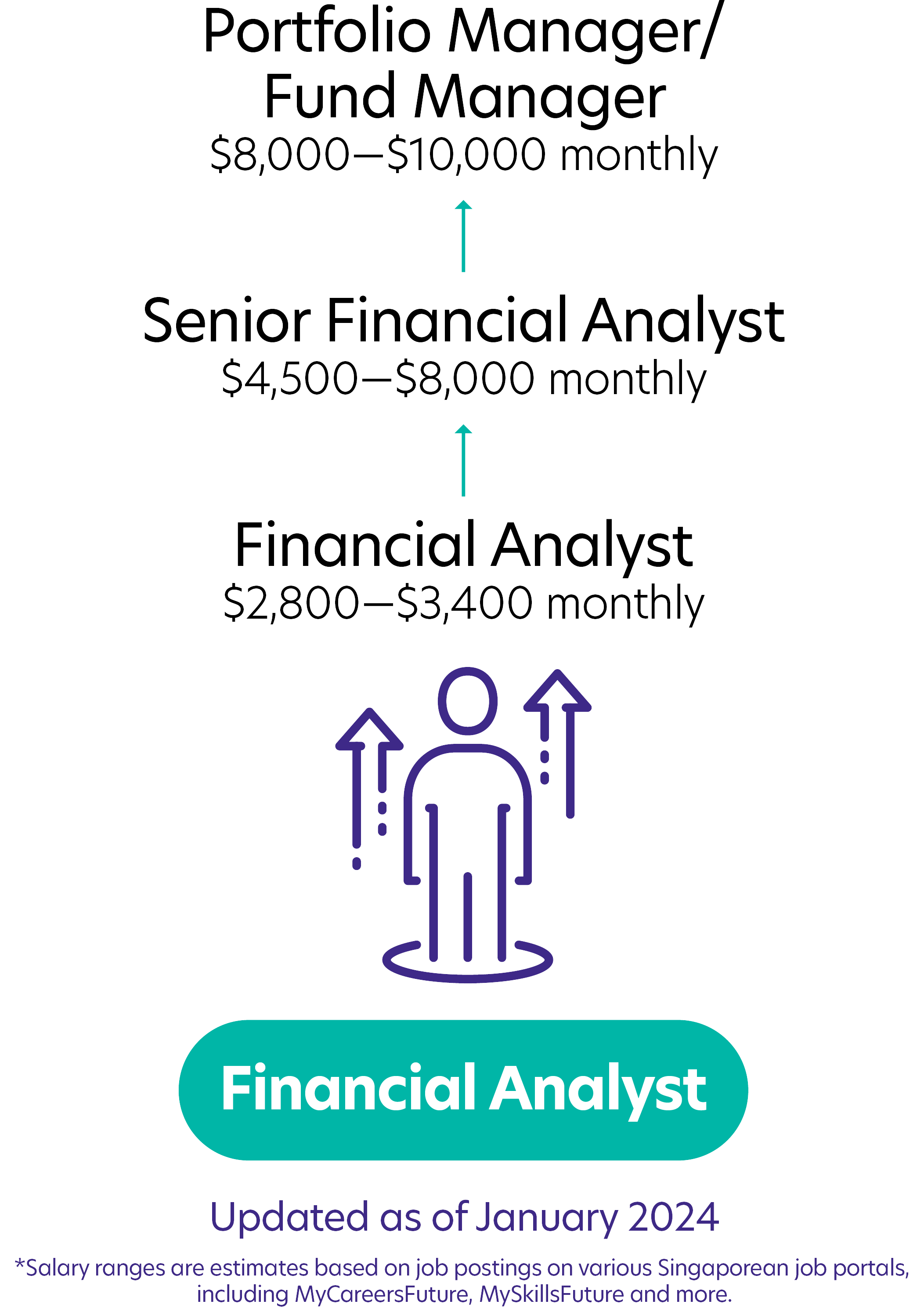
Financial Analysts analyse financial data. They look at indicators of the companies' performance and highlight variances or abnormalities.
Financial Analyst Job Description
- Monitor investments through the analysis of information from various sources including company financial statements, industry reports, and market trends.
- Make forecasts and recommendations to various stakeholders, including the management team and clients.
- Prepare market research reports presenting key financial data and performance metrics in an easy-to-understand format.
- Prepare weekly and monthly management reports.
- Liaise with different parties, such as banks on investment-related activities, ensuring smooth relationships with external partners, and contributing to the overall success of investment activities.
Note
Financial Analysts look into a wide range of activities. They include budgeting, forecasting, investing, valuation, and mergers and acquisitions!
What you should know about Financial Analyst jobs in Singapore
Nature of Work
Financial Analysts specialise in valuing companies, predicting trends, and assessing creditworthiness, demanding strong numerical and data skills.Key Advice
As a Financial Analyst, you need to have a strong grasp of accounting jargon to communicate effectively with your clients and colleagues.-
Entry RequirementsEntry Requirements
- Bachelor's degree in Finance, Accounting, Economics, Business Administration or a related field.
- Higher qualifications such as a master's degree or professional certifications like CFA (Chartered Financial Analyst) or CPA (Certified Public Accountant) may be preferred.
- Internships or experience in finance-related roles can be advantageous.
- Senior roles require several years of experience in financial analysis or related areas.
-
Possible PathwayPossible Pathway

Skills you need to pursue a Financial Analyst career in Singapore
 Hard Skills
Hard Skills
Understanding of Quantitative Finance and Accounting
Applying Mathematics and Statistics to Finance and Risk Management issues.Knowledge of Global and Local Market Trends
Knowledge of global Economics and local markets affecting financial choices.Data Analytics software
Proficient in Excel, SQL, Python, analysing financial data, and visualising trends in large datasets.Innovative Problem-Solving
Creativity and strategy are vital for solving financial issues and optimising growth and stability.Adaptability
Adapting to ever-changing financial landscapes and flexibly adjusting strategies when required is essential.Analytical Skills
Proficiency in analysing financial data and drawing logical conclusions to inform sound business decisions.Related Job Roles
Explore Other Programmes
Browse AllYou have bookmarked your first item!
Find it in My Discoveries with insights on your interests!



